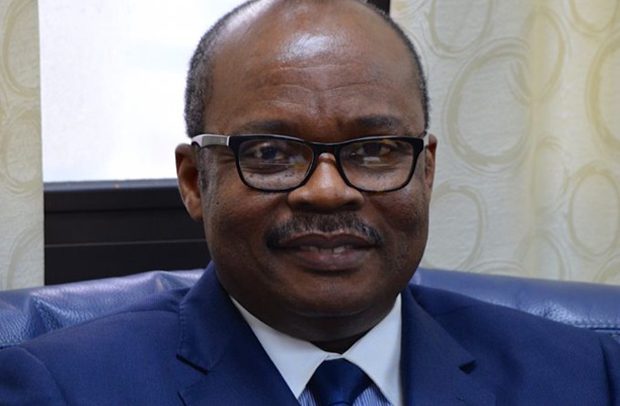Dr Ernest Addison, BoG Governor
Government’s budgetary operations from January to May this year recorded an overall cash deficit of 2.6 percent of Gross Domestic Product (GDP), higher than the target of 2.4 percent of GDP set.
Addressing the press on Monday, Governor of the Bank of Ghana (BoG), Dr Ernest Addison said that revenue and grants, which recorded GH¢17.4 billion, representing 7.2 percent of GDP, was 7.6 percent less than projected while total expenses, including arrears clearance, which recorded GH¢22.6 billion, representing 9.4 percent of GDP, was 6.4 percent short of its target for the period under review.
Commodities markets
He said crude oil prices rose by 18.2 percent on year-on-date basis to an average of $75.9 per barrel in June, this year due to supply constraints amidst geo-political tensions.
However, he noted that crude oil prices had retreated somewhat in recent weeks since OPEC has agreed to boost production.
Gold prices gained a marginal 1.1 percent on year-to-date basis to $1,281.1 per fine ounce, as cocoa prices continued to recover due to a cut back in global production forecasts and increased demand.
Prices increased to $2,435.7 per tonne in June, representing a year-to-date growth of 27.9 percent.
“These price developments, together with improved production outturns, especially in crude oil, translated into a positive trade balance.”
Trade account hits surplus
Provisional estimates, he said, showed that the trade account recorded a surplus of $1.1 billion percent (2.1 percent of GDP) at the end of June 2018, reflecting higher export receipts from crude oil.
“This compares with a surplus of $1.1 billion (2.4 percent of GDP) recorded over the same period in 2017.
Dr Addison said that provisional data showed that the current account recorded a deficit of $334 million (0.6 percent of GDP) at the end of June 2018 compared to a deficit of $181 million (0.4 percent of GDP) recorded for the same period in 2017.
International reserves
Gross international reserves, as at end of June this year, registered $7.3 billion, equivalent to 3.9 months of import cover, providing enough buffer against external shocks.
“Overall growth in the Ghanaian economy is projected to remain high although private sector credit growth remains below expectations. There are, however, emerging signs of recovery evidenced by increased new loan advances and easing credit stance on loans to households despite the ongoing repair of banks’ balance sheets. These, together with positive sentiments by both consumers and businesses, should help spur growth over the medium term,” the governor stated.
By Samuel Boadi


